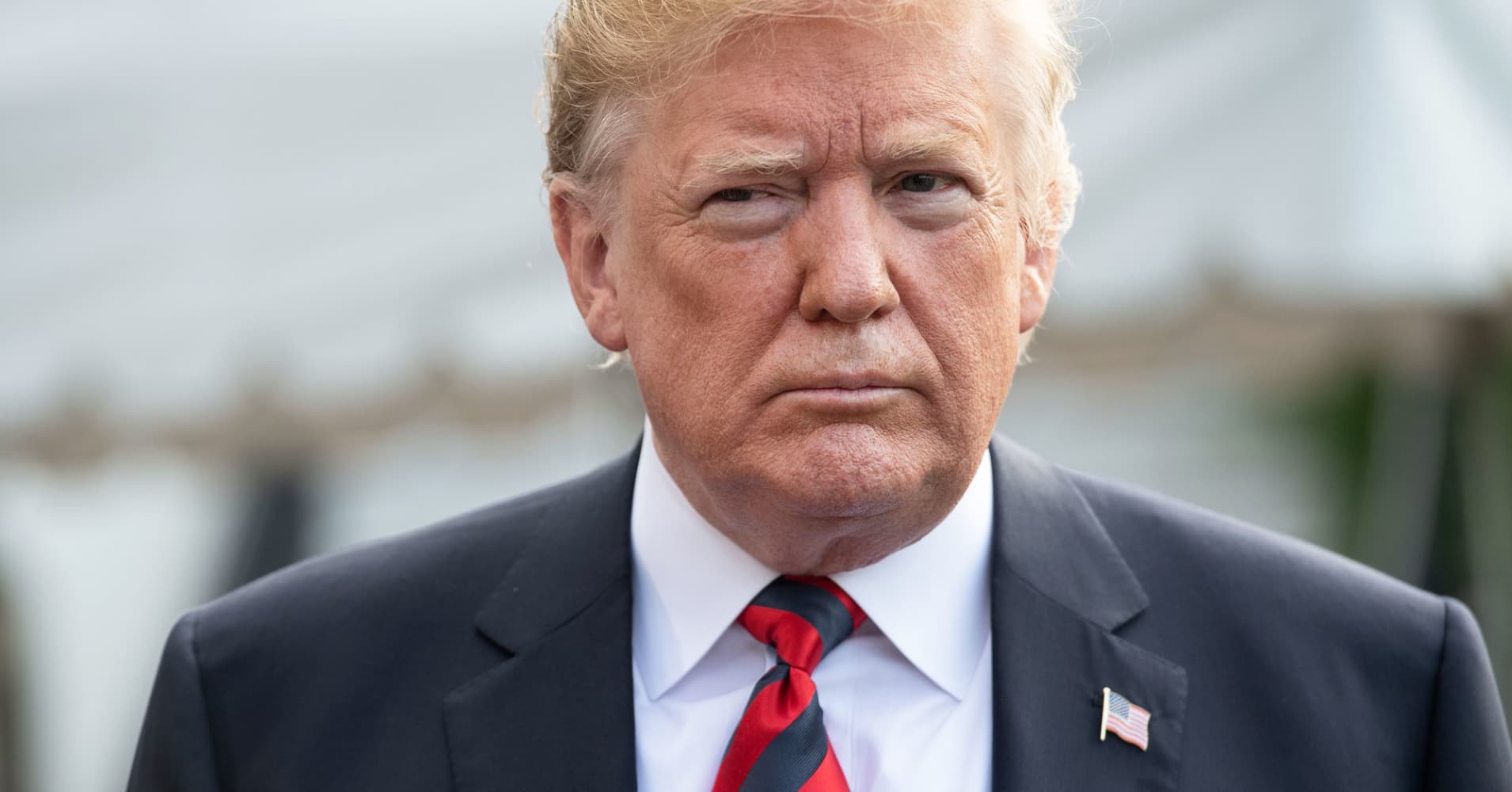
The open enrollment period for people to sign up for health insurance next year through the Affordable Care Act ends Saturday in most states, and signups are significantly down from last year.
While President Donald Trump didn't repeal and replace former President Barack Obama's signature health-care law, more commonly known as Obamacare, he was able to dismantle key parts of it that health policy researchers are blaming for much of the drop.
Sign-ups on the federal health insurance marketplace have fallen 11.7 percent from the same time last year, according to the latest figures from Centers for Medicare and Medicaid Services. The number of new people buying the coverage have dropped even more: 19.7 percent.
The lagging numbers also come as the future of the Affordable Care Act is uncertain. A federal judge in Texas ruled late Friday the law unconstitutional, potentially threatening health-care coverage for millions of Americans and setting up a new legal showdown over Obama's policy initiative. Trump cheered the judge's decision in a tweet.
As I predicted all along, Obamacare has been struck down as an UNCONSTITUTIONAL disaster! Now Congress must pass a STRONG law that provides GREAT healthcare and protects pre-existing conditions. Mitch and Nancy, get it done!
To be sure, the tight labor market is playing at least some role in lower Obamacare enrollment figures this season, health policy experts say.
Historically low unemployment, which was at 3.7 percent in November and October, is helping reduce dependence on the federal health program as more Americans are getting their health insurance from employers. And while Obamacare doesn't require small businesses to offer health coverage, more may now be doing so to attract and retain workers.
The ACA's final enrollment numbers won't be tallied until next week, but health policy experts say several key changes the Trump administration made to the ACA law are helping drive enrollment down this year.
One factor that health policy analysts say could be depressing enrollment for 2019 is the move by the Trump administration allowing people to remain longer in less-expensive short-term health plans, also sometimes referred to as "skimpy" plans.
The Obama administration had restricted the use of short-term plans — which as a rule offer less comprehensive coverage of benefits — to three months. But the Trump administration is allowing people to stay in short-term plans for up to 12 months. And it is allowing consumers to renew their coverage in such plans twice.
Some policy analysts predict those less-expensive plans could attract healthier customers than people who opt for the more expensive, and more comprehensive, Obamacare plans.
This enrollment season was also the first since Congress repealed the so-called individual mandate as part of Trump's tax plan. The mandate, which is still in effect for 2018, imposes a tax penalty on people without coverage. It was designed to persuade people to buy insurance instead of paying the extra tax, which came to the greater of $695 per adult or up to 2.5 percent of household income, depending on how many months an individual went without coverage.
At the time, Trump claimed the tax plan "essentially" repealed the health-care law, which was false.
But without the mandate, Obamacare exchanges were expected to see fewer sign-ups, especially from younger, healthier people who feel they may not need coverage, said Judy Solomon, a senior fellow at the Center on Budget and Policy Priorities, a Washington think tank.
The Obama administration spent $100 million for its advertising and promotional budget in its last year. The Trump administration then scaled back that budget by 90 percent to $10 million for this year's enrollment. The administration also steadily cut funding for so-called navigators, customer service representatives who walk people through the enrollment process.
Some researchers say it's affecting public awareness of the program and deadline to buy coverage. According to the most recent poll from the Kaiser Family Foundation, only 24 percent of Americans ages 18 to 64 are aware of the current open enrollment deadline.
Open enrollment ran for seven weeks this year in most states, much shorter than under the Obama administration. The Trump administration shortened that time period back last year. However, the Obama administration had planned something similar.
No comments:
Post a Comment